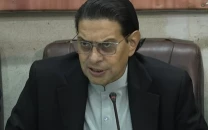Shadow education: Private tutoring is more commercial than schooling
Booming shadow education industry an alarming trend.

Shadow education: Private tutoring is more commercial than schooling
In Asia, private tutoring dominates the lives of young people and their families, maintain and exacerbate social inequalities, divert needed household income into an unregulated industry, and create inefficiencies in education systems. Costs associated with “shadow education” are staggering, the report said adding in Pakistan, expenditures on tutoring per child averaged equivalent to $3.40 a month in 2011, a significant amount. In Hong Kong, China, the business of providing private tutoring to secondary schools reached $255 million in 2011 while in Japan, families spent a whopping $12 billion in 2010 on shadow education, the report said.
The demand for private tutoring is partly driven by negative perceptions of traditional schooling and the belief that extra lessons are essential for academic success. However, private tutoring is not always effective in raising academic achievements; and in some schools students commonly skip classes or sleep through lessons because they are tired after excessive external study. This means that the shadow system can make regular schooling less efficient, it added.
Some teachers are also focusing more on private lessons than regular classes, leading to another cause of inefficiency. Exceptionally problematic are situations in which teachers provide extra-private lessons for pupils for whom they are already responsible in the public system.
This can lead to corruption when teachers deliberately teach less in their regular classes in order to promote the market for private lessons. The report says that policymakers across the region need to take a closer look at how shadow education affects family budgets, children’s time, and national education systems.
Policymakers should then design regulations to protect consumers while focusing
on improvement in mainstream schools in order to reduce the need for private lessons.
Published in The Express Tribune, July 5th, 2012.



















COMMENTS
Comments are moderated and generally will be posted if they are on-topic and not abusive.
For more information, please see our Comments FAQ